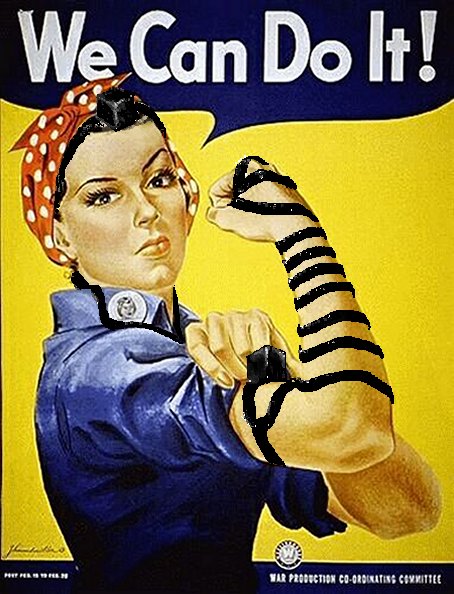Hear, O Israel: the Lord our God, the Lord is One.
Blessed is the Name of the glorious kingdom for all eternity.
You shall love the Lord your God, with all your heart, with all your soul, and with all your resources. Let these matters that I command you today be upon your heart. Teach them thoroughly to your children and speak of them while you sit in your home, while you walk on the way, when you retire and when you arise. Bind them as a sign upon your arm and let them be tefillin between your eyes. And write them on the doorposts of your house and upon your gates.
And it will come to pass that if you continually hearken to My mitzvot that I command you today, to love and serve the Lord your God, with all your heart and with all your soul - then I will provide rain for your land in its proper time, the early and late rains, that you may gather in your grain, your wine, and your oil. I will provide grass in your field for your cattle and you will eat and be satisfied. Beware lest your heart be seduced and you turn astray and serve gods of others and bow to them. Then the wrath of God will blaze against you. God will restrain the heaven so there will be no rain and the ground will not yield its produce. And you will swiftly be banished from the goodly land which God gives you.
Place these words of Mine upon your heart and upon your soul; bind them for a sign upon your arm and let them be tefillin between your eyes. Teach them to your children, to discuss them, while you sit in your home, while you walk on your way, when you retire and when you arise. And write them on the doorposts of your house and upon your gates. In order to prolong your days and the days of your children upon the ground that God has sworn to your ancestors to give them, like the days of the heaven on the earth.
And God said to Moses saying: Speak to the Children of Israel and say to them that they are to make themselves tzitzit on the corners of their garments, throughout their generations. And they are to place upon the tzitzit of each corner a thread of blue. And it shall constitute tzitzit for you, that you may see it and remember all the mitzvot of God and perform them; and not explore after your heart and after your eyes after which you stray. So that you may remember and perform all My mitzvot; and be holy to your God. I am God, your God, Who has removed you from the land of Egypt to be a God to you.
שְׁמַע יִשרָאֵל ה' אֱלהֵינוּ ה' אֶחָד:
בָּרוּךְ שֵׁם כְּבוד מַלְכוּתו לְעולָם וָעֶד:
וְאָהַבְתָּ אֵת ה' אֱלהֶיךָ בְּכָל לְבָבְךָ וּבְכָל נַפְשְׁךָ וּבְכָל מְאדֶךָ: וְהָיוּ הַדְּבָרִים הָאֵלֶּה אֲשֶׁר אָנכִי מְצַוְּךָ הַיּום עַל לְבָבֶךָ: וְשִׁנַּנְתָּם לְבָנֶיךָ וְדִבַּרְתָּ בָּם בְּשִׁבְתְּךָ בְּבֵיתֶךָ וּבְלֶכְתְּךָ בַדֶּרֶךְ וּבְשָׁכְבְּךָ וּבְקוּמֶךָ: וּקְשַׁרְתָּם לְאות עַל יָדֶךָ וְהָיוּ לְטטָפת בֵּין עֵינֶיךָ: וּכְתַבְתָּם עַל מְזֻזות בֵּיתֶךָ וּבִשְׁעָרֶיךָ:
וְהָיָה אִם שָׁמעַ תִּשְׁמְעוּ אֶל מִצְותַי אֲשֶׁר אָנכִי מְצַוֶּה אֶתְכֶם הַיּום לְאַהֲבָה אֶת ה' אֱלהֵיכֶם וּלְעָבְדו בְּכָל לְבַבְכֶם וּבְכָל נַפְשְׁכֶם: וְנָתַתִּי מְטַר אַרְצְכֶם בְּעִתּו יורֶה וּמַלְקושׁ וְאָסַפְתָּ דְגָנֶךָ וְתִירשְׁךָ וְיִצְהָרֶךָ: וְנָתַתִּי עֵשב בְּשדְךָ לִבְהֶמְתֶּךָ וְאָכַלְתָּ וְשבָעְתָּ: הִשָּׁמְרוּ לָכֶם פֶּן יִפְתֶּה לְבַבְכֶם וְסַרְתֶּם וַעֲבַדְתֶּם אֱלהִים אֲחֵרִים וְהִשְׁתַּחֲוִיתֶם לָהֶם: וְחָרָה אַף ה' בָּכֶם וְעָצַר אֶת הַשָּׁמַיִם וְלא יִהְיֶה מָטָר וְהָאֲדָמָה לא תִתֵּן אֶת יְבוּלָהּ וַאֲבַדְתֶּם מְהֵרָה מֵעַל הָאָרֶץ הַטּבָה אֲשֶׁר ה' נתֵן לָכֶם: וְשמְתֶּם אֶת דְּבָרַי אֵלֶּה עַל לְבַבְכֶם וְעַל נַפְשְׁכֶם וּקְשַׁרְתֶּם אתָם לְאות עַל יֶדְכֶם וְהָיוּ לְטוטָפת בֵּין עֵינֵיכֶם: וְלִמַּדְתֶּם אתָם אֶת בְּנֵיכֶם לְדַבֵּר בָּם בְּשִׁבְתְּךָ בְּבֵיתֶךָ בְלֶכְתְּךָ בַדֶּרֶךְ וּבְשָׁכְבְּךָ וּבְקוּמֶךָ: וּכְתַבְתָּם עַל מְזוּזות בֵּיתֶךָ וּבִשְׁעָרֶיךָ:
לְמַעַן יִרְבּוּ יְמֵיכֶם וִימֵי בְנֵיכֶם עַל הָאֲדָמָה אֲשֶׁר נִשְׁבַּע ה' לַאֲבתֵיכֶם לָתֵת לָהֶם כִּימֵי הַשָּׁמַיִם עַל הָאָרֶץ:
וַיּאמֶר ה' אֶל משֶׁה לֵּאמר: דַּבֵּר אֶל בְּנֵי יִשרָאֵל וְאָמַרְתָּ אֲלֵהֶם וְעָשוּ לָהֶם צִיצִת עַל כַּנְפֵי בִגְדֵיהֶם לְדרתָם וְנָתְנוּ עַל צִיצִת הַכָּנָף פְּתִיל תְּכֵלֶת: וְהָיָה לָכֶם לְצִיצִת וּרְאִיתֶם אתו וּזְכַרְתֶּם אֶת כָּל מִצְות ה' וַעֲשיתֶם אתָם וְלא תָתוּרוּ אַחֲרֵי לְבַבְכֶם וְאַחֲרֵי עֵינֵיכֶם אֲשֶׁר אַתֶּם זנִים אַחֲרֵיהֶם: לְמַעַן תִּזְכְּרוּ וַעֲשיתֶם אֶת כָּל מִצְותָי וִהְיִיתֶם קְדשִׁים לֵאלהֵיכֶם: אֲנִי ה' אֱלהֵיכֶם אֲשֶׁר הוצֵאתִי אֶתְכֶם מֵאֶרֶץ מִצְרַיִם לִהְיות לָכֶם לֵאלהִים אֲנִי ה' אֱלהֵיכֶם. אֱמֶת:
בָּרוּךְ שֵׁם כְּבוד מַלְכוּתו לְעולָם וָעֶד:
וְאָהַבְתָּ אֵת ה' אֱלהֶיךָ בְּכָל לְבָבְךָ וּבְכָל נַפְשְׁךָ וּבְכָל מְאדֶךָ: וְהָיוּ הַדְּבָרִים הָאֵלֶּה אֲשֶׁר אָנכִי מְצַוְּךָ הַיּום עַל לְבָבֶךָ: וְשִׁנַּנְתָּם לְבָנֶיךָ וְדִבַּרְתָּ בָּם בְּשִׁבְתְּךָ בְּבֵיתֶךָ וּבְלֶכְתְּךָ בַדֶּרֶךְ וּבְשָׁכְבְּךָ וּבְקוּמֶךָ: וּקְשַׁרְתָּם לְאות עַל יָדֶךָ וְהָיוּ לְטטָפת בֵּין עֵינֶיךָ: וּכְתַבְתָּם עַל מְזֻזות בֵּיתֶךָ וּבִשְׁעָרֶיךָ:
וְהָיָה אִם שָׁמעַ תִּשְׁמְעוּ אֶל מִצְותַי אֲשֶׁר אָנכִי מְצַוֶּה אֶתְכֶם הַיּום לְאַהֲבָה אֶת ה' אֱלהֵיכֶם וּלְעָבְדו בְּכָל לְבַבְכֶם וּבְכָל נַפְשְׁכֶם: וְנָתַתִּי מְטַר אַרְצְכֶם בְּעִתּו יורֶה וּמַלְקושׁ וְאָסַפְתָּ דְגָנֶךָ וְתִירשְׁךָ וְיִצְהָרֶךָ: וְנָתַתִּי עֵשב בְּשדְךָ לִבְהֶמְתֶּךָ וְאָכַלְתָּ וְשבָעְתָּ: הִשָּׁמְרוּ לָכֶם פֶּן יִפְתֶּה לְבַבְכֶם וְסַרְתֶּם וַעֲבַדְתֶּם אֱלהִים אֲחֵרִים וְהִשְׁתַּחֲוִיתֶם לָהֶם: וְחָרָה אַף ה' בָּכֶם וְעָצַר אֶת הַשָּׁמַיִם וְלא יִהְיֶה מָטָר וְהָאֲדָמָה לא תִתֵּן אֶת יְבוּלָהּ וַאֲבַדְתֶּם מְהֵרָה מֵעַל הָאָרֶץ הַטּבָה אֲשֶׁר ה' נתֵן לָכֶם: וְשמְתֶּם אֶת דְּבָרַי אֵלֶּה עַל לְבַבְכֶם וְעַל נַפְשְׁכֶם וּקְשַׁרְתֶּם אתָם לְאות עַל יֶדְכֶם וְהָיוּ לְטוטָפת בֵּין עֵינֵיכֶם: וְלִמַּדְתֶּם אתָם אֶת בְּנֵיכֶם לְדַבֵּר בָּם בְּשִׁבְתְּךָ בְּבֵיתֶךָ בְלֶכְתְּךָ בַדֶּרֶךְ וּבְשָׁכְבְּךָ וּבְקוּמֶךָ: וּכְתַבְתָּם עַל מְזוּזות בֵּיתֶךָ וּבִשְׁעָרֶיךָ:
לְמַעַן יִרְבּוּ יְמֵיכֶם וִימֵי בְנֵיכֶם עַל הָאֲדָמָה אֲשֶׁר נִשְׁבַּע ה' לַאֲבתֵיכֶם לָתֵת לָהֶם כִּימֵי הַשָּׁמַיִם עַל הָאָרֶץ:
וַיּאמֶר ה' אֶל משֶׁה לֵּאמר: דַּבֵּר אֶל בְּנֵי יִשרָאֵל וְאָמַרְתָּ אֲלֵהֶם וְעָשוּ לָהֶם צִיצִת עַל כַּנְפֵי בִגְדֵיהֶם לְדרתָם וְנָתְנוּ עַל צִיצִת הַכָּנָף פְּתִיל תְּכֵלֶת: וְהָיָה לָכֶם לְצִיצִת וּרְאִיתֶם אתו וּזְכַרְתֶּם אֶת כָּל מִצְות ה' וַעֲשיתֶם אתָם וְלא תָתוּרוּ אַחֲרֵי לְבַבְכֶם וְאַחֲרֵי עֵינֵיכֶם אֲשֶׁר אַתֶּם זנִים אַחֲרֵיהֶם: לְמַעַן תִּזְכְּרוּ וַעֲשיתֶם אֶת כָּל מִצְותָי וִהְיִיתֶם קְדשִׁים לֵאלהֵיכֶם: אֲנִי ה' אֱלהֵיכֶם אֲשֶׁר הוצֵאתִי אֶתְכֶם מֵאֶרֶץ מִצְרַיִם לִהְיות לָכֶם לֵאלהִים אֲנִי ה' אֱלהֵיכֶם. אֱמֶת:
The Shema address the concepts of loving God, reward and punishment, and the idea of remembering these ideas in everyday life. It’s easy to say, “Yeah, I love God and know that if I love my Creator I’ll be rewarded and if I worship other gods I’ll be punished,” but harder to integrate those concepts into how you live your life. These passages are taken from the Torah (Deut. 6:5-9, Deut. 11:13-21, and Num. 15:37-41), written by God. We are told by the Creator that the easiest way to remember these things is to “bind them as a sign upon your arm and let them be tefillin between your eyes…make…tzitzit on the corners of [your] garments…”
Wikipedia defines tefillin (phylacteries) as “a set of small cubic leather boxes painted black, containing scrolls of parchment inscribed with verses from the Torah, with leather straps dyed black on one side.” That’s pretty much got it down. Every morning, Jews tie tefillin on their arms and foreheads before they pray. The four scrolls within the tefillin are Exo.13:1-10 (about how the Jews must remember the redemption from Egyptian slavery), Exo. 13:11-16 (the obligation to tell your children about Egypt), Deut. 6:5-9, and Deut. 11:13-21 (the above two passages). Wikipedia defines tzitzit as “specially knotted ritual fringes worn by observant Jews.” (It originally said Jewish males, but I edited it. Heh heh.) That’s also pretty much on target.
Wikipedia says that tefillin is “worn by observant Jews during weekday morning prayers.” This is only 49% true, as traditionally, only observant men wear tefillin. Tzitzit are usually worn throughout the day, underneath the clothing. Like with tefillin, tzitzit is also traditionally only worn by men.
Why is it that only men have worn tefillin and tzitzit throughout history? The Talmud exempted women from most mitzvot asai sheh’hazman grama (positive time-bound commandments). As a result, women have not been required to wear tefillin and tzitzit, which are both mitzvot asai sheh’hazman grama. While they might not be required to, there’s absolutely no halakhic (Jewish law) reason not to. The only reason women wearing tefillin is not widespread is because of societal reasons. (Maggie Anton explores the concept of medieval Jewish women wearing tefillin in her amazing Rashi’s Daughters series.)
In her classic post about tefillin and tzitzit, Shira Salamone discusses obstacles women face about wearing tefillin and tzitzit. Other than her post, I’ve never heard of the concept of either tefillin or tzitzit being beged ish (men’s clothing forbidden from women’s usage), but I have heard the opposition on tzniut (modesty) grounds. (I’m going to explore tzniut in later posts, but suffice it to say that women aren’t allowed to show their elbows, which is something necessary for tefillin-wearing.) However, I don’t see why this is such an issue. If a woman is praying, chances are she’s either in synagogue, where she’s separated from any men by a mehitzah (divider) where they won’t be able to see her elbows, or at home, where she can pray in private (like Joheved, Miriam, and Rachel do in Rashi’s Daughters). No elbow-showing!
You’re probably all assuming that I’m extremely enlightened and pray with tefillin and wear tzitzit every day. Wishful thinking. Since I’m still in high school, I live under my mother’s very Orthodox roof, and I won't disrespect her beliefs while I’m in her household. Once I graduate and get to college, however, I’m looking forward to wearing tefillin and tzitzit. (I’m still on the fence about a yarmulke.) Is it something I expect every Orthodox woman to do as of yet? No. But if you said to someone twenty years ago if they thought there would be any women in Orthodox Jewish leadership, I’m sure he or she would have said that you’re crazy. So too with tefillin and tzitzit: if enough women have a strong desire to become closer with their Creator and want to wear tefillin and tzitzit, the practice will become widespread and accepted.
As we say the Shema, it is imperative that we remember how important it is to remember God and the mitzvot given to us to observe. For those of us wearing tefillin and tzitzit, you've got it a little bit easier. For those of us who don't, we must try to make it possible to wear tefillin and tzitzit, and if it's not, we have to go out of our way to remember these two mitzvot as we recite them in the Shema. If we don't, we're lost.





